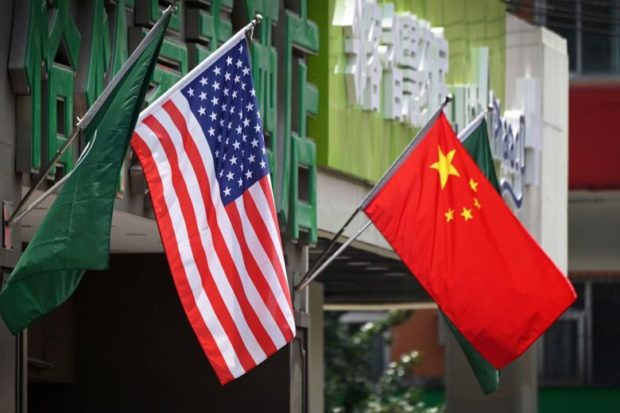
Covid-19 has worsened relations with the two global powers taking actions and counter-actions daily. AFP via The Straits Times/Asia News Network
SINGAPORE — Tensions between the United States and China have risen during the pandemic, creating a more dangerous world for Singapore, Prime Minister Lee Hsien Loong said on Sunday (June 7).
Covid-19 has worsened relations with the two global powers taking actions and counter-actions daily, he noted, as he described a challenging global strategic landscape.
“It will become harder for countries to stay onside with both powers. It will be a more dangerous world for a small country like Singapore,” warned Mr Lee.
Mr Lee said Singapore must work with like-minded countries to support free trade and multilateralism, and enhance its voice and influence in the world, he added.
“We must ensure our security, and protect and advance our interests when dealing with other countries, big and small,” said Mr Lee.
Mr Lee has warned about the global impact of the souring US-China relationship in the past, most recently in a commentary last week for the US-based Foreign Affairs magazine.
He wrote that Singapore and other Asian countries do not want to be forced to pick sides in the intensifying rivalry between both powers, and that strengthening relations with Beijing or Washington should not be a zero-sum situation.
During his televised address to the nation on Sunday, the Prime Minister also said countries will strive to become less dependent on others, especially for essential goods and services like food or critical medical supplies.
This will have strategic implications, he said, with countries having less of a stake in each other’s well-being.
“They will fight more over how the pie is shared, rather than work together to enlarge the pie for all. It will be a less prosperous world, and also a more troubled one,” said Mr Lee.
These developments will affect Singapore greatly, he added.
Historically, Singapore has always made a living by connecting itself with the world, he noted; first, as a trading hub, then an international seaport, and now a hub for aviation, finance and telecommunications.
The Republic has benefited much from an open and connected global economy with large parts of its own economy serving regional and world markets, said Mr Lee.
These include manufacturing, biotech, financial services and logistics, and domestic sectors like retail, food and beverage, and entertainment also rely heavily on tourism.
Now, the nation will have to prepare for a very different future as firms big and small will be hit hard and some industries will be permanently changed.
Mr Lee said retrenchments and unemployment will go up, some jobs will disappear for good, and workers will have to learn new skills to stay employed.
“The next few years will be a disruptive and difficult time for all of us,” he said.